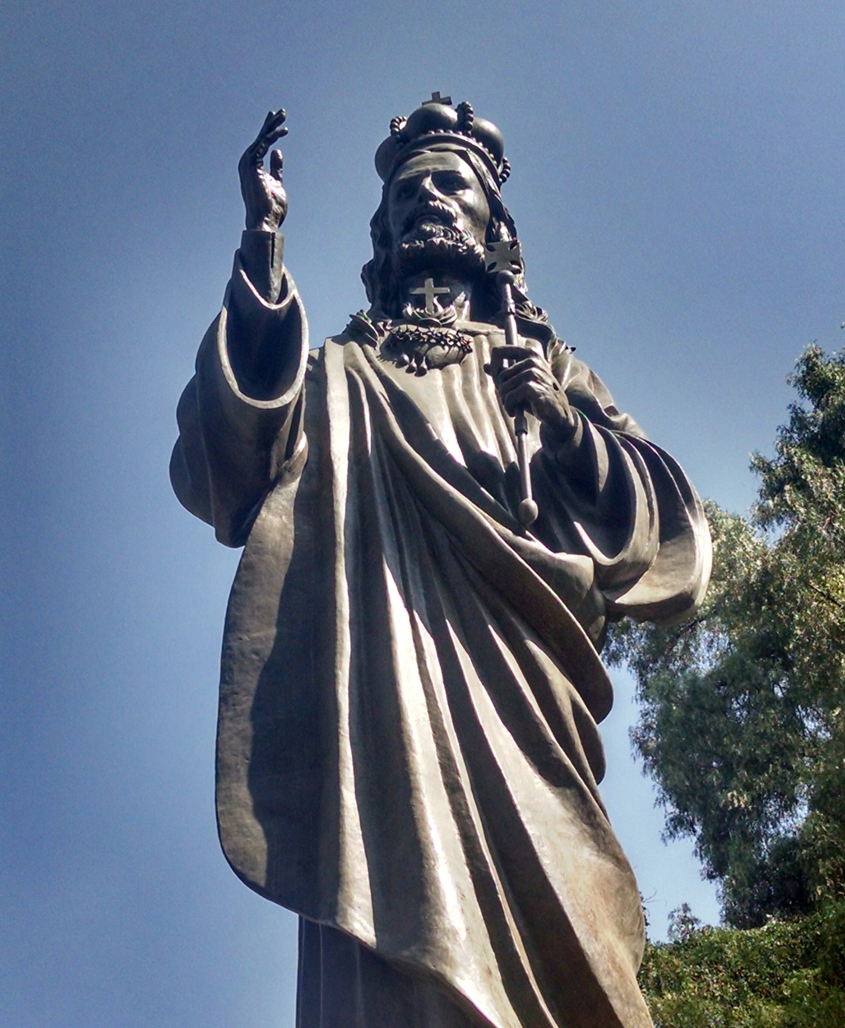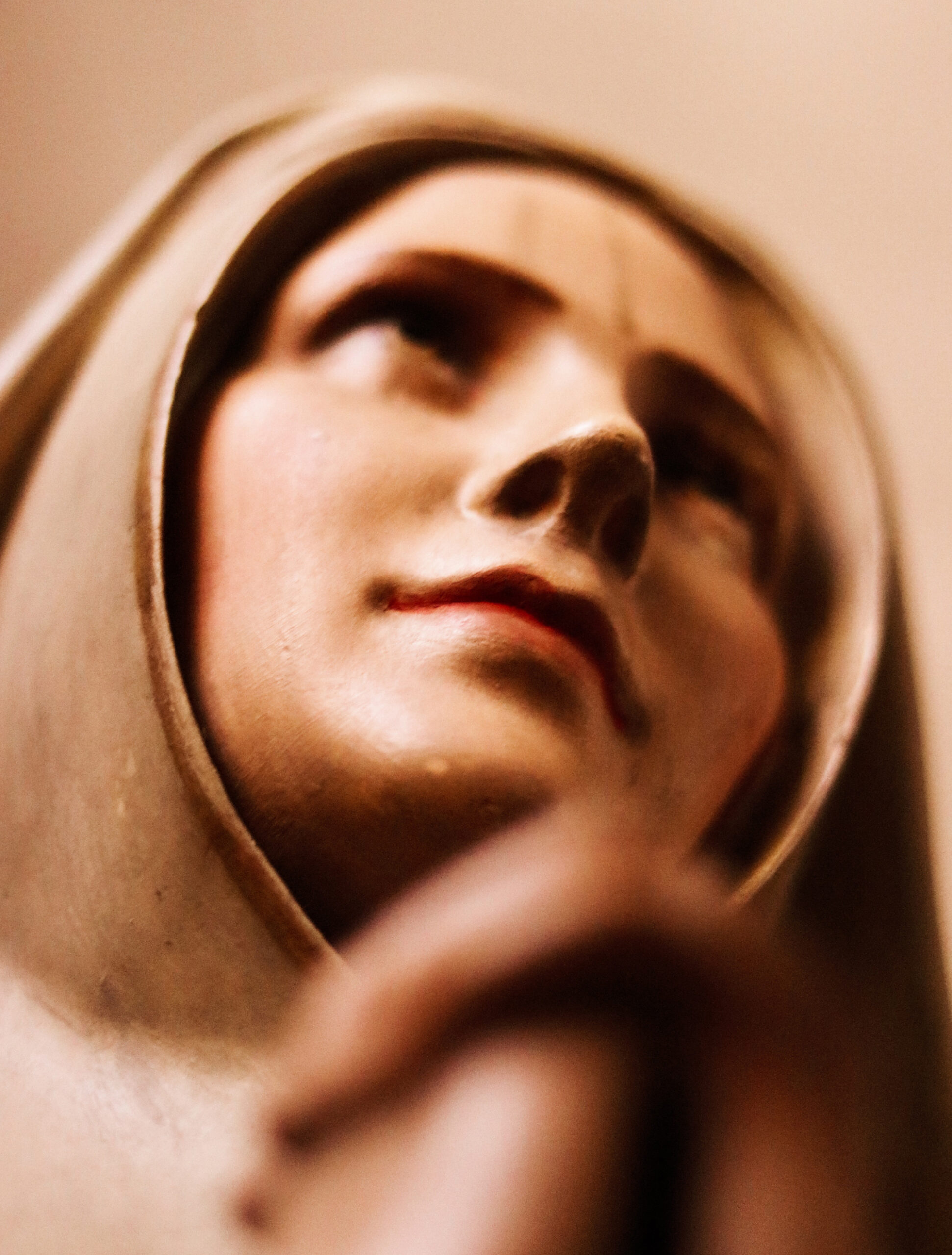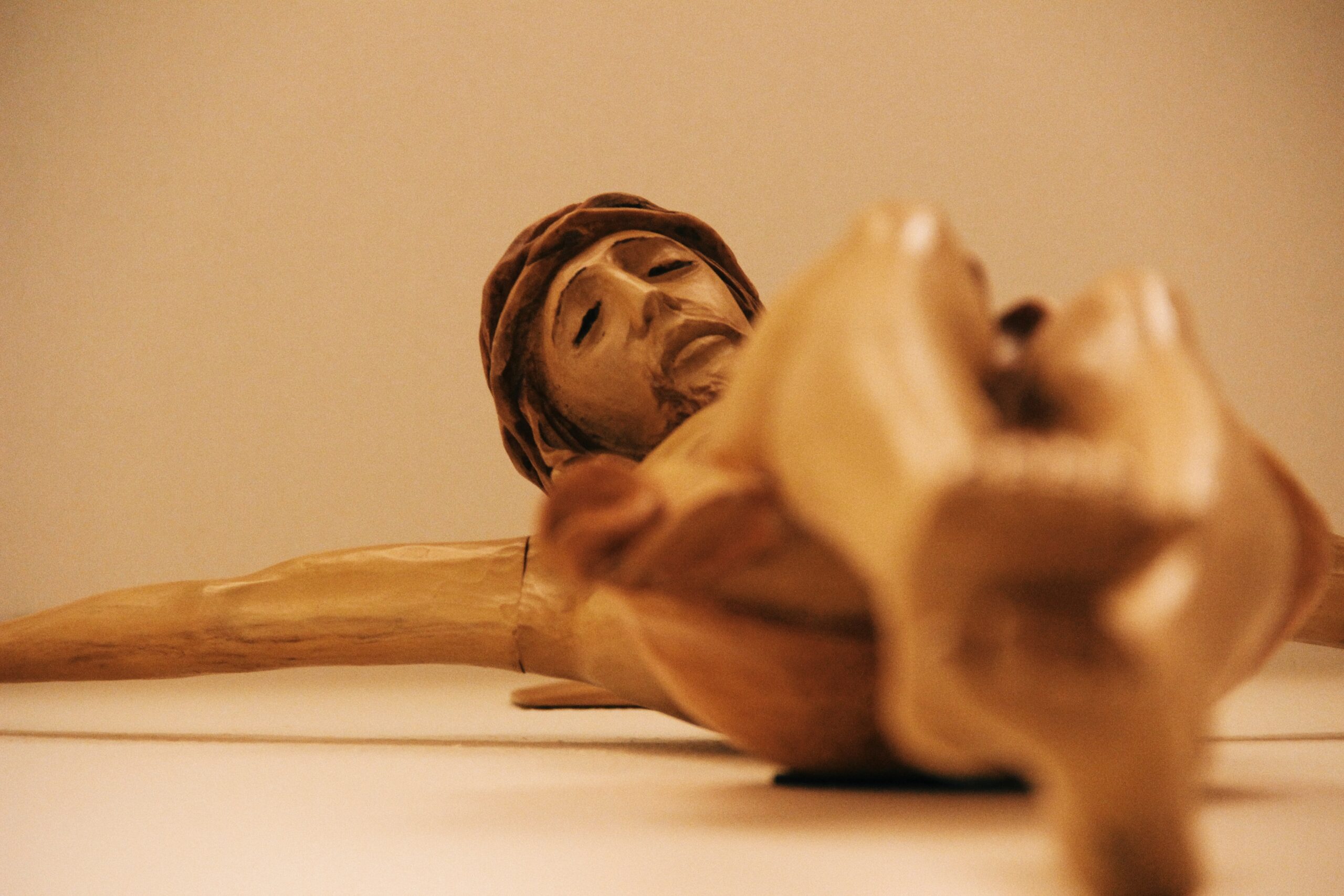Today is the last day of the liturgical year. For a whole year we have journeyed and struggled and wrestled and wondered and wandered with humanity as we have liturgically made our way from creation through re-creation to this day. I believe the Church wants us to rejoice, to tremble with the excited conscious wonder at what has been given to us, what is our destiny in Christ.
The First Reading begins:
“An angel showed me the river of life-giving water,
sparkling like crystal, flowing from the throne of God
and of the Lamb down the middle of the street,
On either side of the river grew the tree of life
that produces fruit twelve times a year, once each month;
the leaves of the trees serve as medicine for the nations.” (Revelation 22: 1-2).
In the end-times, the final river that will flow forever from the throne of God and the heart of the Lamb, the eternal city, the new Jerusalem hearkens back to Genesis, the primordial garden where we first encounter a river: “In the day that the Lord God made the earth and the heavens … a stream would rise from the earth, and water the whole face of the ground” (Genesis 2:4, 6).
However, in the fullness of time and in life everlasting, the river of life-giving water will not rise from the earth but, sparkling like crystal, it will flow from the throne of God and the Lamb, and flow through the middle of the street of the city.
In the garden, leaves became the means for Adam and Eve to hide their naked shame from God, from the Creator who loved them, sustained them, desired their complete and forever happiness. They used fig leaves to cover themselves after they had eaten of the fruit at the bidding of the serpent. In everlasting time, as the book of Revelation tell us, leaves are no longer associated with sorrow and sin and the craftiness of the serpent that brings death and destruction. The leaves of the trees are now the means of healing and health and wholeness and holiness. They serve as medicine for the nations.
We, my friends, know this. The Church places this mystery squarely before our praying hearts and open eyes. The darkened confusing clouds that swirl around people today break the hearts of our brothers and sisters, blinding them to this vision. Too many have never heard it preached to them.
But we have. We have! Today! In this very liturgy! Or if we cannot participate in Mass, in this moment of meditation on the Word. We too live in the confusing chaos of our times, but we have heard of the Fountain of living water that rises within us and the city of Jerusalem that awaits us!
Tomorrow is the first Sunday of Advent. This culminating glory that overflows our hearts spills out into the beginning again of our liturgical remembrance and celebration of the One who has saved us, who reversed our sickness and death and heals us, fills us with life, and washes us in his blood.
In the Responsorial Psalm let us truly cry out: Marana tha! Come, Lord Jesus!
Beware that your hearts do not become drowsy! Begin Advent with joyful excitement and cry out:
Marana tha! Come, Lord Jesus!
 Kathryn James Hermes, FSP, is the author of the newly released title: Reclaim Regret: How God Heals Life’s Disappointments, by Pauline Books and Media. An author and spiritual mentor, she offers spiritual accompaniment for the contemporary Christian’s journey towards spiritual growth and inner healing. She is the director of My Sisters, where people can find spiritual accompaniment from the Daughters of St. Paul on their journey. Website: www.touchingthesunrise.com Public Facebook Group: https://www.facebook.com/groups/srkathrynhermes/ For monthly spiritual journaling guides, weekly podcasts and over 50 conferences and retreat programs join my Patreon community: https://www.patreon.com/srkathryn.
Kathryn James Hermes, FSP, is the author of the newly released title: Reclaim Regret: How God Heals Life’s Disappointments, by Pauline Books and Media. An author and spiritual mentor, she offers spiritual accompaniment for the contemporary Christian’s journey towards spiritual growth and inner healing. She is the director of My Sisters, where people can find spiritual accompaniment from the Daughters of St. Paul on their journey. Website: www.touchingthesunrise.com Public Facebook Group: https://www.facebook.com/groups/srkathrynhermes/ For monthly spiritual journaling guides, weekly podcasts and over 50 conferences and retreat programs join my Patreon community: https://www.patreon.com/srkathryn.
Feature Image Credit: Gerd Altman https://pixabay.com/photos/sky-clouds-clouds-form-3335585/


 Beth Price is part of the customer care team at Diocesan. She brings a unique depth of experience to the group due to her time spent in education, parish ministries, sales and the service industry over the last 25 yrs. She is a practicing spiritual director as well as a
Beth Price is part of the customer care team at Diocesan. She brings a unique depth of experience to the group due to her time spent in education, parish ministries, sales and the service industry over the last 25 yrs. She is a practicing spiritual director as well as a 
 Tami Urcia grew up in Western Michigan, a middle child in a large Catholic family. She spent early young adulthood as a missionary in Mexico, studying theology and philosophy, then worked and traveled extensively before finishing her Bachelor’s Degree in Western Kentucky. She loves tackling home improvement projects, finding fun ways to keep her four boys occupied, quiet conversation with the hubby and finding unique ways to love. She works at Diocesan, is a guest blogger on
Tami Urcia grew up in Western Michigan, a middle child in a large Catholic family. She spent early young adulthood as a missionary in Mexico, studying theology and philosophy, then worked and traveled extensively before finishing her Bachelor’s Degree in Western Kentucky. She loves tackling home improvement projects, finding fun ways to keep her four boys occupied, quiet conversation with the hubby and finding unique ways to love. She works at Diocesan, is a guest blogger on 
 Erin Madden is a Cleveland native and graduate of the Franciscan University of Steubenville. Following graduation, she began volunteering in youth ministry at her home parish of Holy Family Church. Her first “big girl” job was in collegiate sports information where, after a busy two years in the profession on top of serving the youth, she took a leap of faith and followed the Lord’s call to full-time youth ministry at St. Peter Church. She still hopes to use her communication arts degree as a freelance writer and statistician, though. You can catch her on the Clarence & Peter Podcast on YouTube as well as follow her on Twitter @erinmadden2016.
Erin Madden is a Cleveland native and graduate of the Franciscan University of Steubenville. Following graduation, she began volunteering in youth ministry at her home parish of Holy Family Church. Her first “big girl” job was in collegiate sports information where, after a busy two years in the profession on top of serving the youth, she took a leap of faith and followed the Lord’s call to full-time youth ministry at St. Peter Church. She still hopes to use her communication arts degree as a freelance writer and statistician, though. You can catch her on the Clarence & Peter Podcast on YouTube as well as follow her on Twitter @erinmadden2016.
 Merridith Frediani’s perfect day includes prayer, writing, unrushed morning coffee, reading, tending to dahlias, and playing Sheepshead with her husband and three kids. She loves finding God in the silly and ordinary. She writes for Ascension Press, Catholic Mom, and her local Catholic Herald in Milwaukee. Her first book Draw Close to Jesus: A Woman’s Guide to Eucharistic Adoration is expected to be released summer 2021. You can reach her at
Merridith Frediani’s perfect day includes prayer, writing, unrushed morning coffee, reading, tending to dahlias, and playing Sheepshead with her husband and three kids. She loves finding God in the silly and ordinary. She writes for Ascension Press, Catholic Mom, and her local Catholic Herald in Milwaukee. Her first book Draw Close to Jesus: A Woman’s Guide to Eucharistic Adoration is expected to be released summer 2021. You can reach her at 
 Dakota currently lives in Denver, CO and teaches English Language Development and Spanish to high schoolers. She is married to the love of her life, Ralph. In her spare time, she reads, goes to breweries, and watches baseball. Dakota’s favorite saints are St. John Paul II (how could it not be?) and St. José Luis Sánchez del Río. She is passionate about her faith and considers herself blessed at any opportunity to share that faith with others. Check out more of her writing at
Dakota currently lives in Denver, CO and teaches English Language Development and Spanish to high schoolers. She is married to the love of her life, Ralph. In her spare time, she reads, goes to breweries, and watches baseball. Dakota’s favorite saints are St. John Paul II (how could it not be?) and St. José Luis Sánchez del Río. She is passionate about her faith and considers herself blessed at any opportunity to share that faith with others. Check out more of her writing at 
 David Dashiell is the Associate Director of Liturgy for a group of parishes in Pittsburgh, Pennsylvania. When he is not spending time with his wife and infant daughter, he is writing on philosophy and theology for various online publications. You can find some of these in Crisis Magazine and the Imaginative Conservative, and you can contact him at
David Dashiell is the Associate Director of Liturgy for a group of parishes in Pittsburgh, Pennsylvania. When he is not spending time with his wife and infant daughter, he is writing on philosophy and theology for various online publications. You can find some of these in Crisis Magazine and the Imaginative Conservative, and you can contact him at 
 Kathryn Mulderink, MA, is married to Robert, Station Manager for Holy Family Radio. Together they have seven children (including newly ordained Father Rob and seminarian Luke ;-), and two grandchildren. She is a Secular Discalced Carmelite and has published five books and many articles. Over the last 25 years, she has worked as a teacher, headmistress, catechist, Pastoral Associate, and DRE. Currently, she serves the Church as a writer and voice talent for Catholic Radio, by publishing and speaking, and by collaborating with the diocesan Office of Catechesis, various parishes, and other ministries to lead others to encounter Christ and engage their faith. Her website is
Kathryn Mulderink, MA, is married to Robert, Station Manager for Holy Family Radio. Together they have seven children (including newly ordained Father Rob and seminarian Luke ;-), and two grandchildren. She is a Secular Discalced Carmelite and has published five books and many articles. Over the last 25 years, she has worked as a teacher, headmistress, catechist, Pastoral Associate, and DRE. Currently, she serves the Church as a writer and voice talent for Catholic Radio, by publishing and speaking, and by collaborating with the diocesan Office of Catechesis, various parishes, and other ministries to lead others to encounter Christ and engage their faith. Her website is 
 Deacon Dan Schneider is a retired general manager of industrial distributors. He and his wife Vicki recently celebrated their 50th wedding anniversary. They are the parents of eight children and twenty-nine grandchildren. He has a degree in Family Life Education from Spring Arbor University. He was ordained a Permanent Deacon in 2002. He has a passion for working with engaged and married couples and his main ministry has been preparing couples for marriage.
Deacon Dan Schneider is a retired general manager of industrial distributors. He and his wife Vicki recently celebrated their 50th wedding anniversary. They are the parents of eight children and twenty-nine grandchildren. He has a degree in Family Life Education from Spring Arbor University. He was ordained a Permanent Deacon in 2002. He has a passion for working with engaged and married couples and his main ministry has been preparing couples for marriage.
 Patrick produces YouTube content for young Catholics on
Patrick produces YouTube content for young Catholics on 
 Shannon Whitmore currently lives in northwestern Virginia with her husband, Andrew, and their two children, John and Felicity. When she is not caring for her children, Shannon enjoys writing for her blog, Love in the Little Things, reading fiction, and freelance writing. She has experience serving in the areas of youth ministry, religious education, sacramental preparation, and marriage enrichment.
Shannon Whitmore currently lives in northwestern Virginia with her husband, Andrew, and their two children, John and Felicity. When she is not caring for her children, Shannon enjoys writing for her blog, Love in the Little Things, reading fiction, and freelance writing. She has experience serving in the areas of youth ministry, religious education, sacramental preparation, and marriage enrichment.
